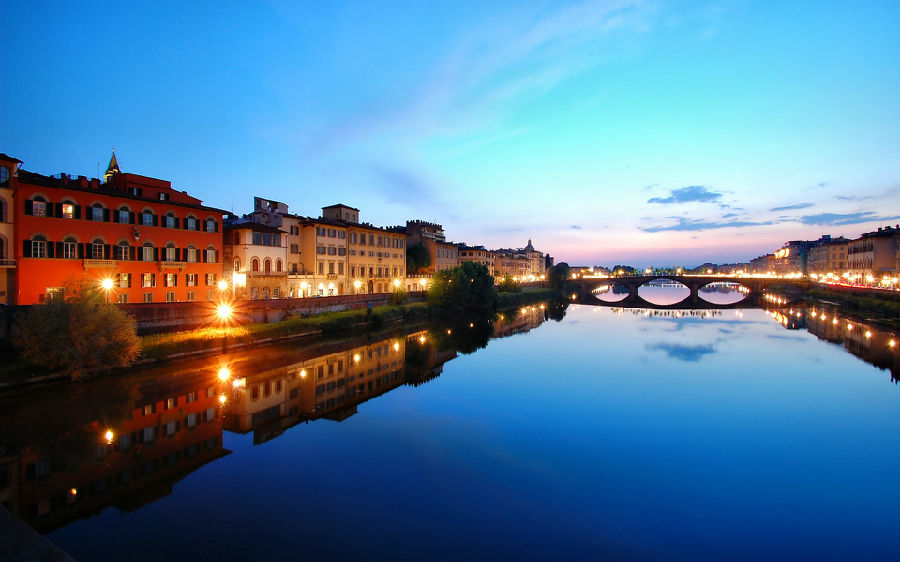Leaders Italian politics in turmoil
先驅(qū) 意大利政壇動(dòng)蕩不安
Run, Mario, run
馬里奧,快跑
A rare chance of reform in Italy—but its current prime minister needs to come out fighting
意大利改革,機(jī)會(huì)難得;現(xiàn)任總理,應(yīng)挺身而出
For a moment, it was like the bad old days in Italy. After the main centre-right party, the People of Freedom (PdL), withdrew its support for the technocratic prime minister, Mario Monti, he dramatically announced his forthcoming resignation on December 8th. Worse, Silvio Berlusconi said that he would run as the PdL’s candidate for prime minister, for the sixth time, in the election now expected in February (though he may change his mind). No wonder the financial markets were spooked.
有那么一瞬間,意大利仿佛重返糟糕的舊時(shí)代。12月8日馬里奧·蒙蒂戲劇性地宣稱其即將提交辭職申請(qǐng),而此前主要中右翼黨派自由民主黨(PdL)表示不再支持這位堅(jiān)持專家統(tǒng)治論的總理。更糟的是,預(yù)計(jì)在明年2月舉行的大選中,西爾維奧·布盧斯科尼(盡管期間他可能會(huì)改變注意)還稱將以PdL候選人身份第六次競(jìng)選總理一職。難怪金融市場(chǎng)已如驚弓之鳥。

In the 13 months since the clownish Mr Berlusconi was ousted, Mr Monti has brought calm, some significant reform and a lot more dignity to his country. Yet Italy is still potentially one of the weakest links in the euro. It has the world’s fourth-biggest debt stock and is mired in the deepest recession among the euro zone’s biggest economies. Over the past decade its economy has barely grown. Although the budget deficit is under reasonable control, far more extensive reforms are needed to restore Italian competitiveness and to reignite growth. Mr Monti’s resignation will stymie further reform until after the election. The big question is, who will win?
13個(gè)月前,小丑布盧斯科尼被罷黜,自那以來,蒙蒂給意大利帶來了平靜,并已開展了一些有意義的改革,提升了意大利的口碑。然而意大利依舊是歐元區(qū)鏈條中最薄弱的一環(huán),是全球第四大負(fù)債國(guó),相較歐元區(qū)其他最大經(jīng)濟(jì)體,意大利在經(jīng)濟(jì)衰退泥沼中陷得最深。過去的10年里,意大利經(jīng)濟(jì)停滯不前,雖說預(yù)算赤字在合理可控范圍內(nèi),但它依舊需要更多的改革來重塑其競(jìng)爭(zhēng)力,重振其經(jīng)濟(jì)。然而蒙蒂的辭職會(huì)在至下一次大選期間內(nèi)扼制改革的進(jìn)一步推行。一個(gè)很重要的問題是:誰會(huì)贏得此次大選?
There is a terrible option, an acceptable one and a potentially very good one. The awful would be the return of Mr Berlusconi. Fortunately, the PdL is languishing at little more than 15% in the opinion polls, and the elderly media tycoon will also be blamed by some voters for bringing down Mr Monti.
有三種可能:一個(gè)很糟,一個(gè)可勉強(qiáng)接受,還有一個(gè)非常有前景。最糟的是布盧斯科尼重返政壇。所幸的是,自民黨的聲望在下降,其支持率在民意測(cè)驗(yàn)中只有15%多一點(diǎn),而且布盧斯科尼這位年長(zhǎng)的媒體界巨頭會(huì)因蒙蒂的離開而受部分選民譴責(zé)。
Far more likely is a win for the centre-left Democratic Party (PD) led by Pier Luigi Bersani, which has 30-35% in the polls, enough for his bloc to secure the winner’s premium of extra seats in the lower house. Mr Bersani was a reformer when he was last in government, between 2006 and 2008. He has promised broadly to stick to the combined policies of fiscal austerity and structural reforms laid out by Mr Monti. But he may find it hard to deliver, as he will depend for support on allies from the far left and on unions that are hostile to change.
相較之下,更有可能的情況是,由皮爾·路易吉·貝爾薩尼領(lǐng)導(dǎo)的中左翼民主黨(PD)獲勝,該黨派擁有30-35%的支持率,一旦勝任,該黨在下議院中便可獲得更多席位。2006至2008年在貝爾薩尼上一次擔(dān)任政府要職期間,他堅(jiān)持改革,承諾繼續(xù)支持蒙蒂提出的財(cái)政緊縮和結(jié)構(gòu)改革并行的政策。然而,實(shí)施改革困難重重,因?yàn)檫@需要他既得到極左派的支持,又贏得反改革派工黨的幫助。
Last week we said that Mr Bersani as prime minister with Mr Monti as president might be a reasonable outcome. Now, however, there is a chance of something better: Mr Monti could be elected as prime minister himself. His unexpected resignation is, by his technocratic standards, an aggressive political act. Italy’s business leaders are urging him to stand—by joining a centrist party, perhaps Pier Ferdinando Casini’s Union of Christian and Centre Democrats or a new group created by Luca Cordero di Montezemolo, the boss of Ferrari.
上周本報(bào)評(píng)論說,以貝爾薩尼為總理,蒙蒂為主席的組合可能會(huì)是個(gè)不錯(cuò)的結(jié)局。然而,現(xiàn)在有一種更好的結(jié)局:總理之職仍由蒙蒂自己擔(dān)任。他出人意料的辭職,按照專家統(tǒng)治論的標(biāo)準(zhǔn),只是以退為進(jìn)的政治手段。并且意大利商界領(lǐng)袖強(qiáng)烈要求蒙蒂做好準(zhǔn)備,加入一個(gè)中立黨派從而贏得大選,可以是皮爾·費(fèi)迪南多·卡西尼領(lǐng)導(dǎo)的基督教民主黨,也可以是由法拉利老板盧卡·科爾德羅·迪·蒙特澤莫羅創(chuàng)立的新政黨。
The risk is that a Monti candidacy could split the anti-Berlusconi ticket, letting il Cavaliere in by the back door. But there is also a huge opportunity. If a Monti-led party drew enough votes from left and right to win, he would have a real mandate for reform, especially when it came to opening up markets to competition and reshaping the state sector. Italy has never had such a government. With a pro-business centrist at the helm, some of Mr Berlusconi’s supporters might join up. If Mr Bersani’s PD were offered enough posts—he himself could perhaps become deputy prime minister and thus Mr Monti’s presumed successor—he might also join in.
然而這樣存在風(fēng)險(xiǎn),原先反對(duì)布盧斯科尼而支持蒙蒂的票數(shù)將一分為二,反而讓“邪惡騎士”布盧斯科尼乘虛而入。但蒙蒂還有很大的勝算。如果蒙蒂領(lǐng)導(dǎo)的黨派能獲得足夠多的左翼右翼人士的支持,那么他便能贏得選舉,便能真正授權(quán)推行改革,特別是此事意大利需要開放市場(chǎng),面向競(jìng)爭(zhēng)和重整國(guó)營(yíng)部門。在意大利歷史上從未有過這樣的政府。若掌權(quán)的是一名親商的中間派,一些貝盧斯科尼的支持者也會(huì)加入該陣營(yíng)。如果貝尼薩爾的民主黨獲得足夠的票數(shù),他便可能成為副總理,也就認(rèn)定是蒙蒂的繼任人,那么他自然也會(huì)加入蒙蒂的陣營(yíng)。
Stay in Rome, not St Moritz
留在羅馬,別去圣莫里茨
It might not work. Mr Monti is not a natural politician, never having run for elective office. He might not win. Previously he has seemed more drawn to the Italian presidency (or the European Union’s). If he does not feel up to the job, he should duck out now. But if he cares about his country, this is the time to come out fighting—and persuade other centrists to join him. Italians are fed up with the mess their country is in. This is a rare opportunity to change things.
然而這未必能實(shí)現(xiàn)。蒙蒂不是一個(gè)天生的政客,他從未參選擔(dān)任公職,所以他可能贏不了。之前,他似乎更傾向于意大利總統(tǒng)之職(或是歐盟總統(tǒng)之職)。如果他覺得自己不能勝任這一工作,他就應(yīng)當(dāng)馬上退出。但是,如果他心系祖國(guó),他應(yīng)此時(shí)挺身而出——并且說服其他中立黨派加入他的陣營(yíng)。意大利人受夠了他們國(guó)家的長(zhǎng)期以來的混亂糟糕。這是千年難遇的改革良機(jī)。 翻譯:郁炳睿












